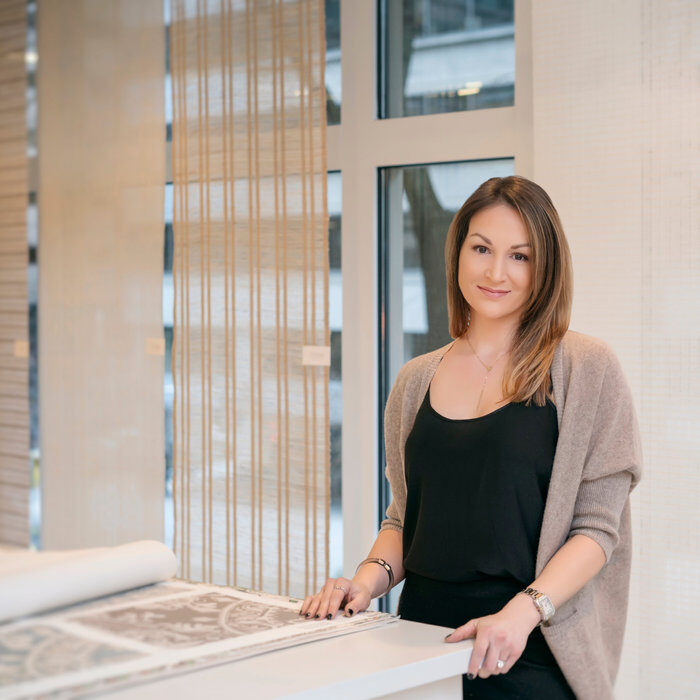What Matters
April 2022 Issue
Field Trip – Casa Perfect
Casa Perfect is a popup by NYC-based design retailer Future Perfect. It is housed within a 1971 Beverly Hills 5,000 sq ft home designed by local architect Raul F. Garduno. The residence possesses a seductive low-rise silhouette with long curving hallways and floor to ceiling windows that afford panoramic views of the LA basin. The home is sited within Trousdale Estates, a wooded enclave above Sunset Boulevard that emerged as one of the world’s foremost hubs of modernist architecture in the ‘50s and ‘60s. The neighborhood’s master architects included Wallace Neff, Harold Levitt and Frank Lloyd Wright.
Stepping inside, it is clear that the home has been largely preserved from its Seventies heyday, with a profusion of period details including wall-to-wall ochre carpet, vertical blinds, a sunken Roman style jacuzzi and popcorn ceilings. Casa Perfect presents a masterclass in contemporary collectible design. Established names such as Lindsey Adelman, Reinaldo Sanguino, and Chris Wolston are layered against vibrant pieces from Floris Wubben, Ben Mendansky, Chen Chen and Kai Williams, and Bari Ziperstein.

Sunken Treasure
Megan Johnson at Apartment Therapy did a little research on sunken bathtubs which revealed that the trend flourished in the mid-20th century, prompted by a renewed fascination with cultures of antiquity. In a 1963 issue of Modern Living, sunken bathtubs were said to be inspired in part by “glimpses of Roman high living” in the classic 1963 film Cleopatra. Along with the film, bathroom fixture manufacturer Crane Co. sold a line of sunken tubs, one of which was dubbed the “Marc Antony.” And in the same year, House Beautiful featured a spread titled “The Big Swing to the Sunken Tub.” Paired with photos of tubs that resembled small indoor swimming pools, the article called the sunken bathtub “a thing of beauty,” and repeatedly described them in terms associated with grandeur, like “luxurious” and “pampering.”

Extrude the Expression
Studio Floris Wubben was founded in 2009 in Amsterdam. Design pieces and sculptural objects made by the studio are sold in galleries around the world and held in museum collections around the world. The studio is renowned for its unique products at the intersection of functional and sculptural design. All pieces by Studio Floris Wubben are fabricated at the Dutch studio workshop.
Floris Wubben uses low-tech machines to create serially produced unique objects. The combination of natural materials such as ceramics and the influence of the designer on the production process generate the distinctively shaped objects. Most of the ceramic furniture is crafted through custom made extruders.

Bedroom Community
De La Espada furniture is featured in this Casa Perfect bedroom. Its dedicated solar-powered factory in Portugal is at the heart of its business. Specializing in solid wood, its expert craftspeople combine advanced technology with handcraft to create truly unique, meaningful objects. Each product is meticulously detailed and engineered to last a lifetime.
De La Espada was founded in 1993 by Luis De Oliveira and Fatima De La Espada. Hailing from Porto and Madrid respectively and educated in London, the founders opened the first De La Espada store in London in 1996, when there was comparatively little quality contemporary furniture in the city. The De La Espada aesthetic evolved from influences including the Arts and Crafts movement, architects such as Tadao Ando, Luis Barragán, John Pawson, and Álvaro Siza, and Scandinavian design from the 1950s. Now the company collaborates with contemporary designers from around the world to form a design community.
Ask us about ordering pieces from the De La Espada line.

That ’70s Show
Enjoy some photos of the interior of this 1970s masterpiece.




On the Boards
On the boards this week, we’re revisiting our #IMLivingOnTheEdgemoor project. Our design team recently went on-site and walked throughout the home with the contractors to ensure no detail was missed. Millwork drawings, tile installation markups, and detailed guides and schedules for the construction team are all ways Interior Matter streamlines the construction process for not just our clients, but the trades we work with as well.





